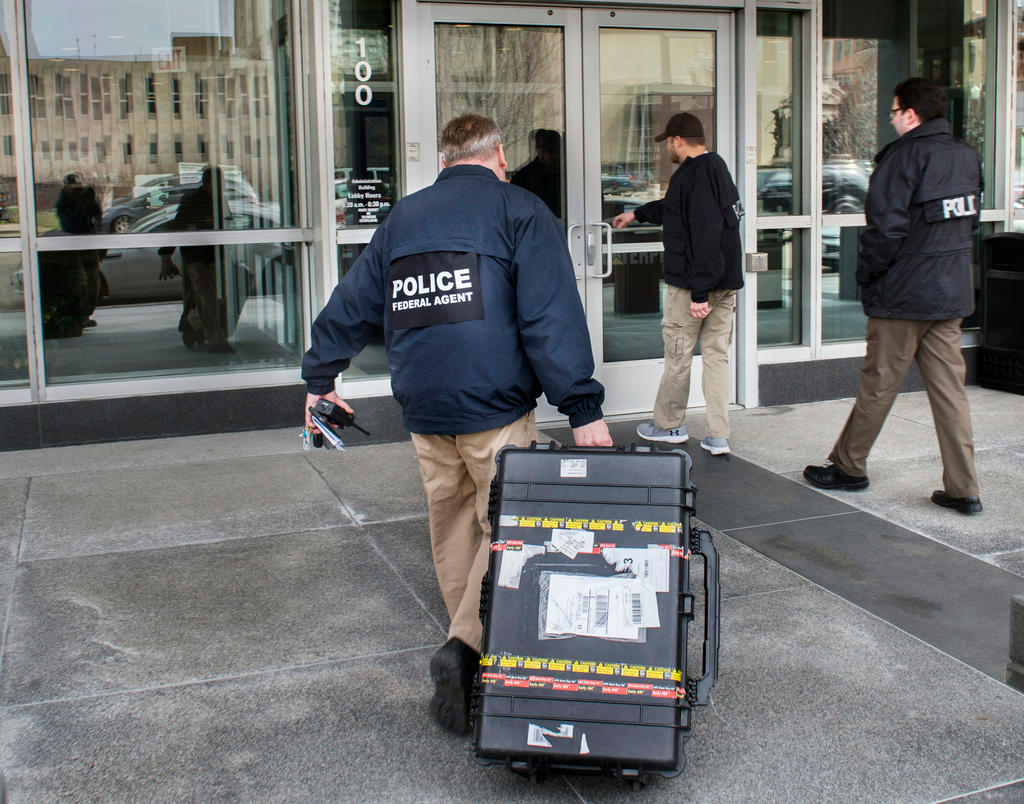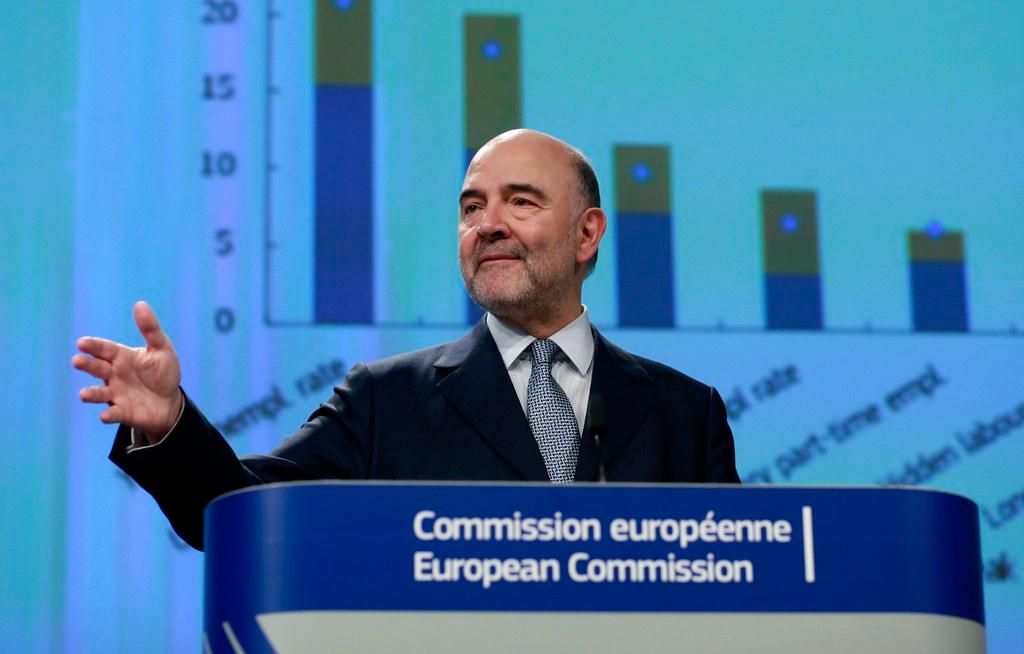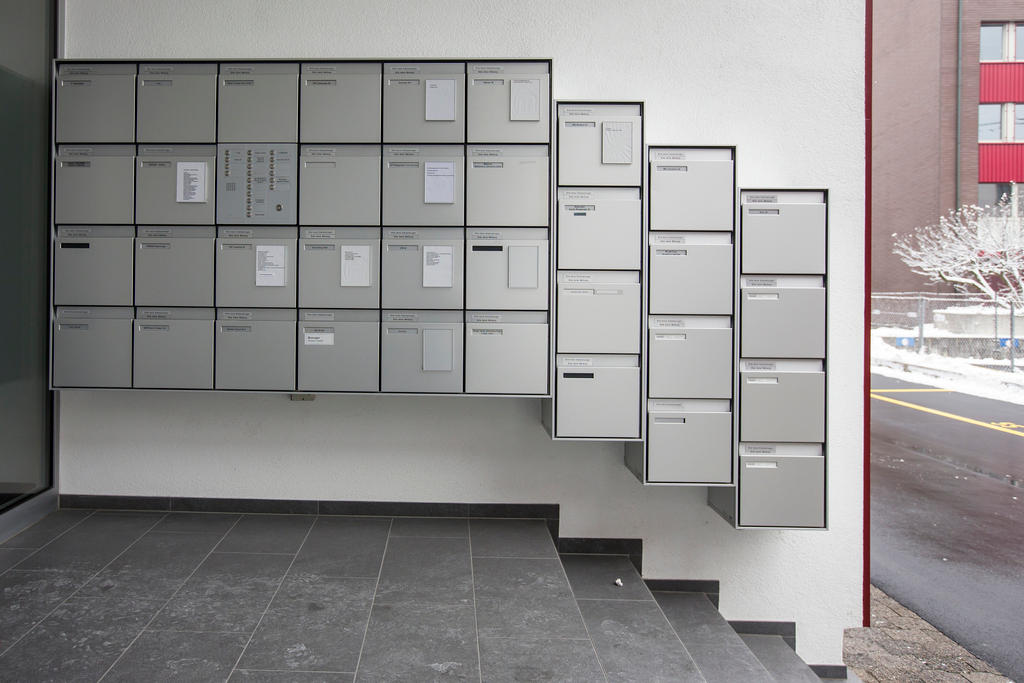Caterpillar HQ raided over suspected tax probe into Swiss operation

American law enforcement officials searched the headquarters of heavy machine manufacturer Caterpillar and two other facilities on Thursday as part of a tax investigation linked to the firm’s Swiss subsidiary in Geneva.
In a statement issued on Thursday, Caterpillar said it believed the search was part of an Internal Revenue Service (IRS) investigation related to profits earned by a Swiss parts subsidiary, Caterpillar SARL, or CSARL. The firm said it was cooperating with law enforcement.
A spokeswoman for the US Attorney Office for the Central District of Illinois, Sharon Paul, confirmed that federal law enforcement officials conducted searches at locations in Peoria, East Peoria and Morton, Illinois, but did not say why federal agents raided the three locations.
In a 2014 report the US Senate permanent subcommittee on investigationsExternal link said that Caterpillar had adopted “a tax strategy that shifted billions of dollars in profits away from the United States and into Switzerland, where Caterpillar had negotiated an effective corporate tax rate of 4 to 6 per cent”. According to the report, Caterpillar bought parts and resold them to dealers overseas, assigning the profits to the Swiss subsidiary and lowering its US taxes.
The 2014 report claimed that Caterpillar deferred or avoided paying $2.4 billion in US taxes between 2000 and 2012 by shifting more than $8 billion of parts sales to Switzerland.
The Senate subcommittee report found that Caterpillar had no parts warehouses in Switzerland, but 85% or more of profits from Caterpillar’s parts sales outside the US were recorded as coming from SARL. By 2008, Caterpillar had shifted 45% of global revenues and 43% of its profits to the Swiss operation, which employed less than one-half of 1% of Caterpillar’s 118,500 employees worldwide.
Caterpillar is contesting an IRS demand to levy taxes and penalties of approximately $2 billion arising from its assignment of profit to the Swiss operation, according to filings with the Securities and Exchange Commission. Caterpillar, in its 2016 annual report, said it is “vigorously contesting” the IRS demand. “We believe that the relevant transactions complied with applicable tax laws and did not violate judicial doctrines,” it stated.
PricewaterhouseCoopers, which was paid $55million to devise the plan while also serving as Caterpillar’s auditor, declined comment to Reuters.
The apparent escalation of the government’s tax dispute with Caterpillar comes as the Trump administration and leaders in Congress have said they want to launch a broad overhaul of the corporate tax code, lowering rates and designing the system to encourage companies to keep jobs and profits within the US.
The Trump administration’s apparent crackdown on US firms shifting profits to lower tax countries is another blow for Switzerland, which is struggling to adapt its tax laws to meet international standards.
The European Union and the Organisation for Economic Cooperation and Development (OECD) have both demanded an end to Switzerland’s “harmful” tax practices that give tax breaks to foreign firms. Tax privileged foreign companies contribute CHF5 billion to Swiss tax coffers annually.
But a proposed package of corporate tax reforms were rejected by Swiss voters on February 12.
The Swiss-American Chamber of Commerce reacted to the vote by stating: “In this environment, no company will further invest in Switzerland. How can we credibly reassure international companies that they are welcome in Switzerland? ‘Everything is under control’ suddenly rings hollow.”
Switzerland was also named the world’s fourth worst corporate tax haven in a report last year that claimed profit shifting by companies costs poor countries at least $100 billion a year.
Switzerland is by no means the only country to be labelled a corporate tax haven – Ireland, Belgium, the Netherlands and Luxembourg are among other countries also attracting criticism. Last year, the Swiss government took the first steps towards country-by-country reporting for firms. If implemented, this would force companies to reveal where in the world they make profits – and where they are taxed.

In compliance with the JTI standards
More: SWI swissinfo.ch certified by the Journalism Trust Initiative




You can find an overview of ongoing debates with our journalists here. Please join us!
If you want to start a conversation about a topic raised in this article or want to report factual errors, email us at english@swissinfo.ch.